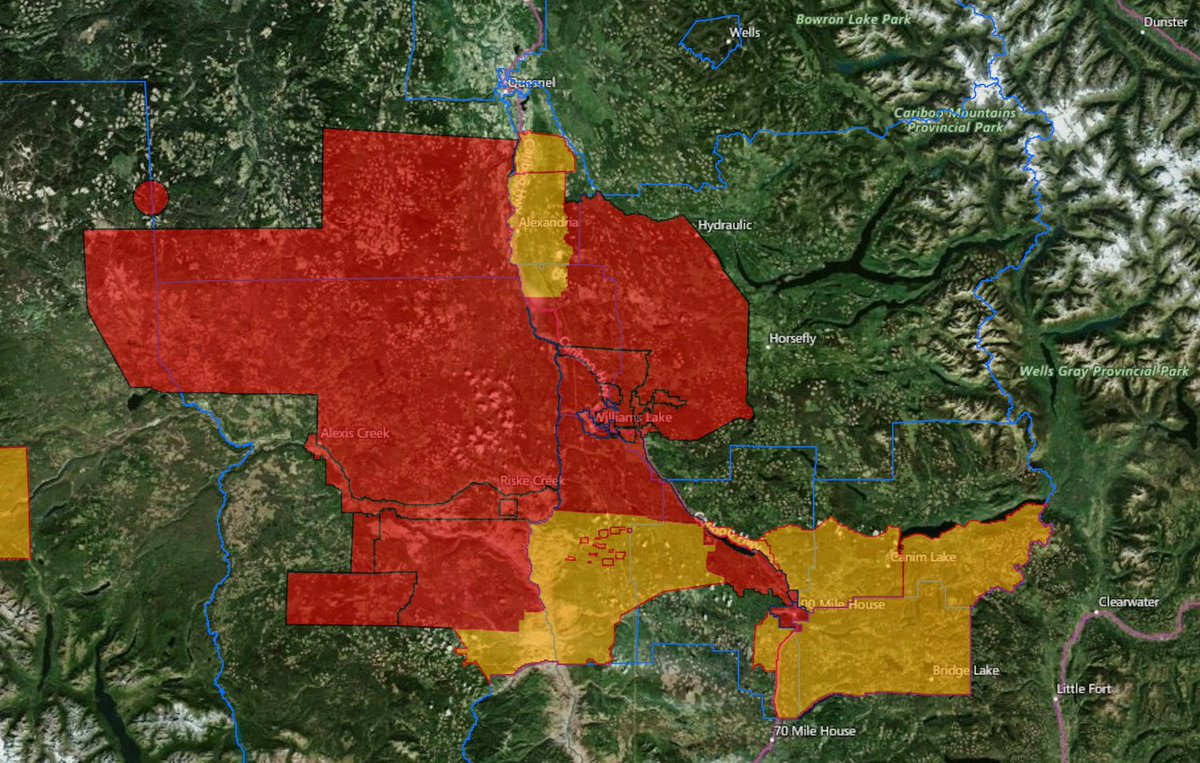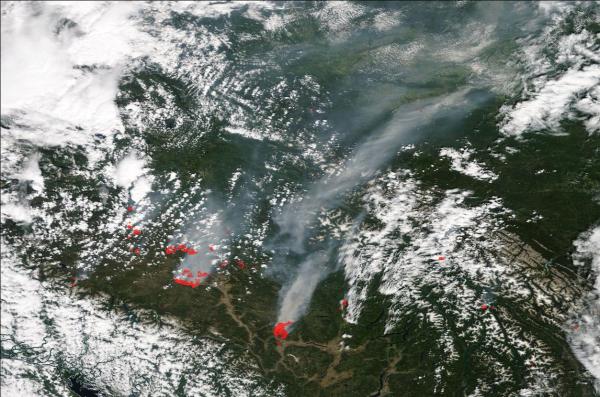Echoes of Fort McMurray — Massive Wildfire Forces the Emptying of Another Canadian City
16
July, 2017
A
little more than a year after a massive wildfire forced the full
evacuation of Fort McMurray in Alberta, another set of extreme
wildfires in British Columbia is again forcing major population
centers to empty. In the region of Williams Lake and Cariboo
City, 17,400
people have been forced to flee as
a wildfire is threatening the major highway exiting the area. As
the fire expands, another 27,000 in the broader province may also be
asked to leave.
This mass evacuation has been enough to empty large urban centers —
turning them into ghost towns as fires rage through the surrounding
countryside.
This is B.C.'s Cariboo region.
The red is under evacuation ORDER (yellow is alert).
The red contains more than 1.5 million hectares.
On
Saturday, 40 mph winds, hot temperatures in the 90s (F), and
lightning strikes fanned flames in the region — considerably
worsening the fire situation and spurring more comprehensive
evacuation orders. Heavy rains earlier in the year caused rapid
vegetation growth. But as much warmer than normal temperatures
accompanied by dry, windy conditions entered the region in June and
July, the new growth has turned into tinder — adding a serious fire
hazard.
(Scores
of very large wildfires rage across British Columbia on July 15 —
casting smoke plumes that now stretch across most of Canada. For
reference, bottom edge of this image frame covers roughly 550 miles.
Image source: NASA
Worldview.)
Presently,
160 wildfires are now burning across British Columbia. This number is
down from more than 200 fires earlier in the week. However, many of
the larger fires have grown in size. The result is that the
province is still under a very severe alert level 4 with
a mass mobilization of firefighting resources underway. On July 15,
the fires were clearly visible in NASA satellite imagery (see above).
Precipitation
extremes and increasingly warm temperatures are a hallmark signal of
human caused climate change resulting from continued fossil fuel
burning. And it is these kinds of conditions that have dominated
British Columbia over recent months. Both the strong swing from wet
to dry conditions accompanied by much warmer than normal summer
temperatures is climate change related and has likely served to
increase the fire danger throughout British Columbia this year.
Links:






No comments:
Post a Comment
Note: only a member of this blog may post a comment.